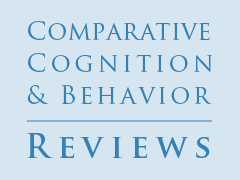Are You Studying Occasion Setting? A Review for Inquiring Minds
Kenneth J. Leising, Jordan Nerz, John Solorzano-Restrepo, and Sara R. Bond
Department of Psychology, Texas Christian University
Reading Options
Abstract
Holland (1983) proposed that occasion setting was a type of learning distinct from simple discriminations (X+, Y−), with the defining property as modulation by one stimulus (X) of the associative value of another stimulus (XA+, A−), which is orthogonal to any direct control of behavior or any outcome representation elicited by X. A variety of procedures have been developed to evaluate acquisition of this kind of control, as well as distinguish it from direct control. Application of occasion setting in psychology has remained largely confined to traditional associative learning paradigms. The current review aims to provide researchers with the knowledge and tools necessary to identify whether occasion setting might be occurring in their own research. One test procedure is recommended, though several options are reviewed. We encourage thinking more broadly about the presence of occasion setting by evaluating its potential role in spatial learning, match-to-sample (MTS), and theory of mind (ToM), among others. Furthermore, we briefly review demonstrations of occasion setting in other organisms, including invertebrates. These demonstrations suggest that occasion setting has played an important role in evolutionary fitness.
Keywords: occasion setting, conditional discrimination, biconditional, patterning
Author Note: Kenneth J. Leising, Department of Psychology, Texas Christian University, 2800 S. University Drive, Attn: Box 298920, Fort Worth, TX 76129, United States
Correspondence concerning this article should be addressed to Kenneth J. Leising at k.j.leising@tcu.edu.

